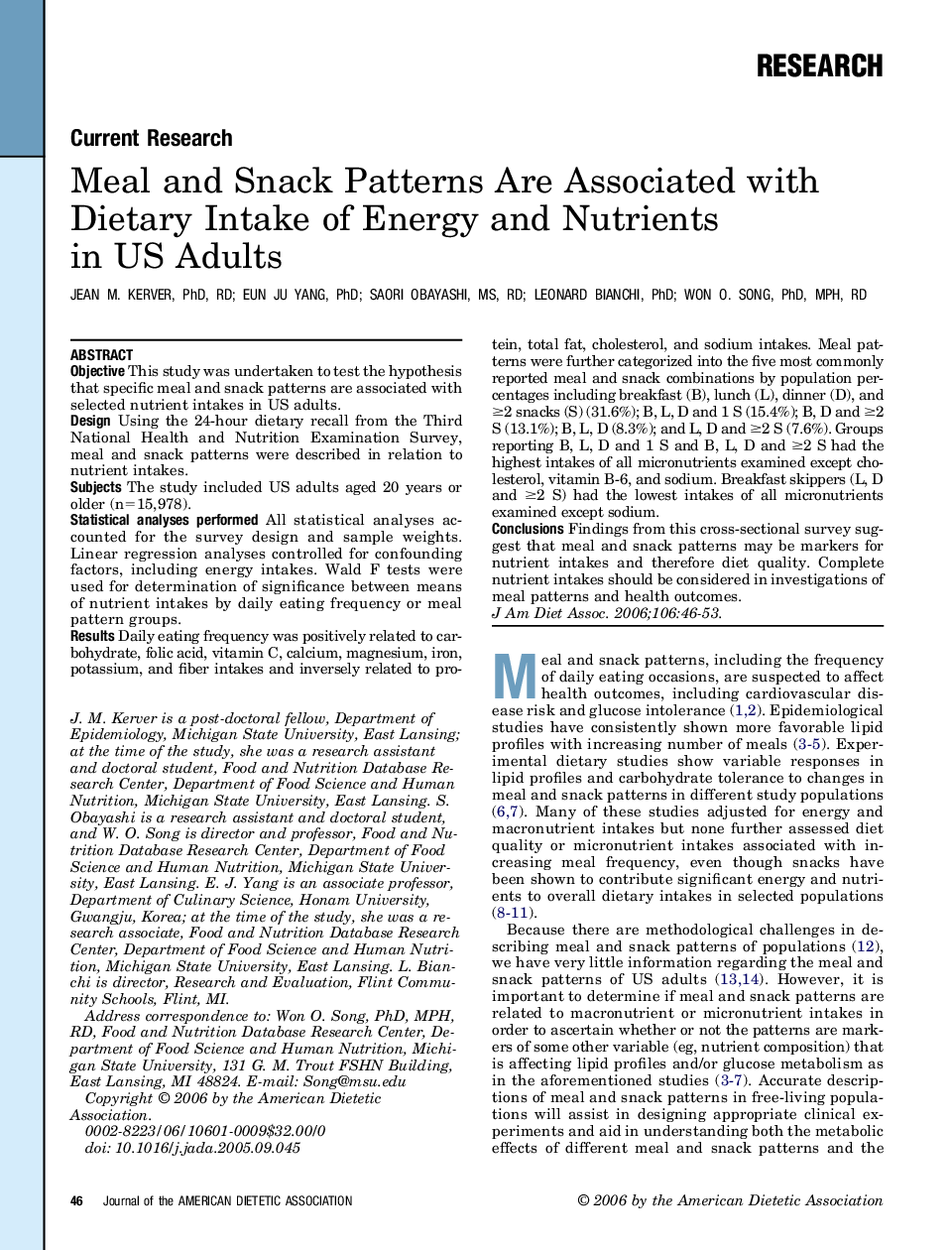| کد مقاله | کد نشریه | سال انتشار | مقاله انگلیسی | نسخه تمام متن |
|---|---|---|---|---|
| 2658392 | 1140078 | 2006 | 8 صفحه PDF | دانلود رایگان |

ObjectiveThis study was undertaken to test the hypothesis that specific meal and snack patterns are associated with selected nutrient intakes in US adults.DesignUsing the 24-hour dietary recall from the Third National Health and Nutrition Examination Survey, meal and snack patterns were described in relation to nutrient intakes.SubjectsThe study included US adults aged 20 years or older (n=15,978).Statistical Analyses PerformedAll statistical analyses accounted for the survey design and sample weights. Linear regression analyses controlled for confounding factors, including energy intakes. Wald F tests were used for determination of significance between means of nutrient intakes by daily eating frequency or meal pattern groups.ResultsDaily eating frequency was positively related to carbohydrate, folic acid, vitamin C, calcium, magnesium, iron, potassium, and fiber intakes and inversely related to protein, total fat, cholesterol, and sodium intakes. Meal patterns were further categorized into the five most commonly reported meal and snack combinations by population percentages including breakfast (B), lunch (L), dinner (D), and ≥2 snacks (S) (31.6%); B, L, D and 1 S (15.4%); B, D and ≥2 S (13.1%); B, L, D (8.3%); and L, D and ≥2 S (7.6%). Groups reporting B, L, D and 1 S and B, L, D and ≥2 S had the highest intakes of all micronutrients examined except cholesterol, vitamin B-6, and sodium. Breakfast skippers (L, D and ≥2 S) had the lowest intakes of all micronutrients examined except sodium.ConclusionsFindings from this cross-sectional survey suggest that meal and snack patterns may be markers for nutrient intakes and therefore diet quality. Complete nutrient intakes should be considered in investigations of meal patterns and health outcomes.
Journal: Journal of the American Dietetic Association - Volume 106, Issue 1, January 2006, Pages 46–53